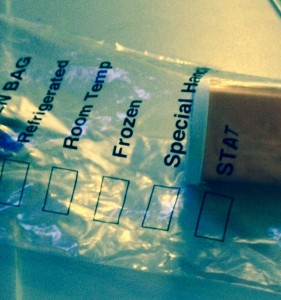
As I sit down on my comfy sofa to write blogs, she welcomes me like one of Grandmum’s warm oatmeal cookies…

…cushions made with just the right amount of butter and water, taken from the oven while still soft, enveloping my posterior as if to say, “There, now. You are safe, warm and loved.”
My couch; I love her so.
Whether you use one word or a whole sentence, personification (when not overdone) can make your writing relatable.
Most of us know the nature of people–what they are like, how they behave; but any time you apply human qualities to inanimate objects, you use personification.
You can achieve personification subtly; one well-placed human trait can personify your words and create a memorable image for your reader:
The stars winked at me as I embarked on my voyage.
I paused to listen with joy as the wind sang in my ears.
Stars winking? Wind singing?
If you’re someone who takes thing literally, you might find personification is not for you.

But don’t forget what is possible within your imagination!
You have experienced the stars and the wind as inanimate elements in your daily life. Now you add a “human” trait to deepen your familiarity, and, presto! Out comes a personification.
Similes, metaphors, and personification
Personification in the form of a word or a few words can also be considered a metaphor or a simile. In fact, some may say that all personifications are metaphors and similes, but not all metaphors and similes are personifications.
However, certain brands of personification do not qualify as similes, which happens when you clearly treat an inanimate object as if it were human (usually in fiction or maybe in a journal—used just for humor).
Tommy the Truck: a bittersweet story of personification

The following posts, adapted from my Facebook page, involve the ill health and eventual passing of my pickup truck; judging from the emotional reactions, comments, and LIKEs elicited from my posts on Tommy, well, my truck may as well have been human:
January 7th: Downtown Springfield: Tommy had to take a ride in an ambulance to a garage for a diagnosis tomorrow. Poor twuk has never been away from Mommy this long.

January 10th: Tommy made it through his surgery. He is still running roughly, however. As he limps down the road, I feel his pain.
 January 20th: Poor Tommy, my truck, had to be towed again from work last Thursday. He was in the truck hospital again and had computer board surgery. He got a used computer, but he will need to be replaced. His compression is poor. I will have to get a different vehicle in a month or so when I can afford it.
January 20th: Poor Tommy, my truck, had to be towed again from work last Thursday. He was in the truck hospital again and had computer board surgery. He got a used computer, but he will need to be replaced. His compression is poor. I will have to get a different vehicle in a month or so when I can afford it.
“Alas, poor Tommy (Yorick)! I knew him, Horatio…” (But I moved four times with all my stuff in his truck bed, and he is only a 4 cylinder.) Poor little guy.
My Facebook status updates for Tommy were not only met with an outpouring of LIKEs and comments, but with heartfelt wishes for Tommy to “get well soon.”

When later I announced Tommy’s poor prognosis, wishes for recovery becoming condolences, my Facebook friends didn’t disappoint:
.
…Tommy had lived a full life.
…May he rest in peace in junkyard heaven.
…Maybe he just wants to take early retirement.

So, in my case, on Facebook, personification worked on its audience and delivered the sympathy I probably had been craving at the time.
Still skeptical about the effectiveness of personification?
Let’s try an experiment.
Let’s remove personification from my post to a stripped-down (forgive me) version:

My truck broke down.
And its lackluster follow-up post:
My truck broke down, again.
How many LIKEs, comments, shares and sympathies might be warranted now?
I rest my case.
 As an aside…It’s not nice to “LIKE” something tragic, but people do it every day:
As an aside…It’s not nice to “LIKE” something tragic, but people do it every day:
“My father died.”
Susie likes your post.
Bad, bad, bad. Be careful.
REMEMBER: Use personification sparingly in writing that allows for a degree of individual flair.
Be sure you stay in context, too.

Where personification does not belong
Personification has no business poking its nose into serious reports…nor should personification butt in where scholarly writing is concerned… except possibly when writing in a style that might allow for or even reward personification (e.g. when your essay is about a genre that uses personification).
Thou shalt not commit a syntax error
Do not interject a phrase that is worded informally (meaning the same way you speak) using the syntax you developed from childhood until now. Resist the temptation to insert your brand of poetic flair into formal writing. If you simply cannot help yourself, do so at your peril.
Read up on syntax clashes and syntax errors, and you’ll find it can be quite technical. The least you need to know: stick with one style throughout your writing. Failing that, contact us for help with your scholarly writing.
And may your day be filled with all the glow of a kid with a lollipop.
 Jarod, a tall, handsome psych major, strolled up to a round table in the college student union and plopped down his heavy book bag. It landed on Jenny’s right foot.
Jarod, a tall, handsome psych major, strolled up to a round table in the college student union and plopped down his heavy book bag. It landed on Jenny’s right foot.
